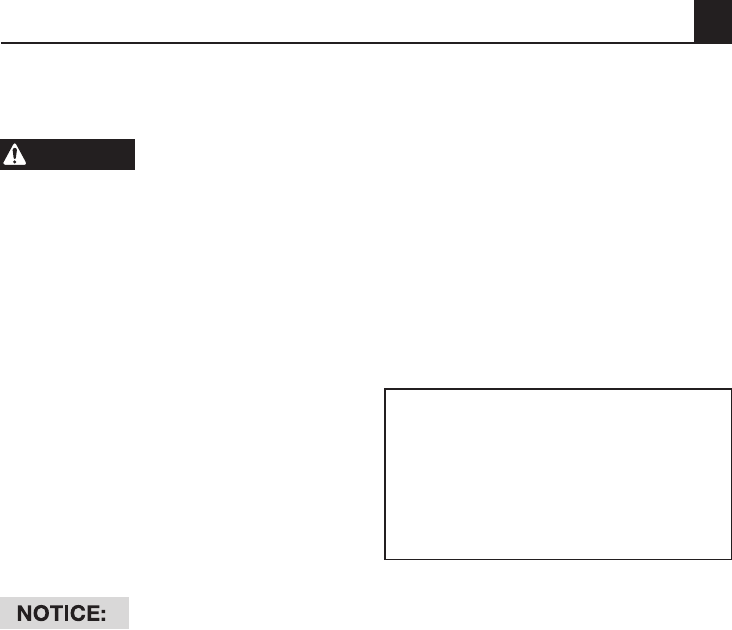
3-1
OPERATION 3
FUEL AND OIL
GASOLINE
• Gasolineandgasolinevaporsare
extremely flammable. To avoid
fires and explosions and to reduce
the risk of injury when refueling,
follow these instructions.
• Gasoline is poisonous and can
cause injury or death. Handle
gasoline with care. Never siphon
gasoline by mouth. If you should
swallow some gasoline, inhale a
lot of gasoline vapor, or get some
gasoline in your eyes, see your
doctor immediately. If gasoline
spills on your skin, wash with
soap and water. If gasoline spills
on your clothing, change your
clothes.
• Do not use leaded gasoline.
Leaded gasoline can seriously
damage the engine.
• Avoid getting water and con-
taminants in the fuel tank.
Contaminated fuel can cause poor
performance and engine damage.
Use only fresh gasoline that has
been stored in clean containers.
1) Before refueling, turn off the engines.
Never refuel while smoking, or while
in the vicinity of sparks, open flames,
or other sources of ignition.
2) Refuel the boat in a well-ventilated
area. If the boat is in the water, be
sure it is securely moored to the
fueling dock. All passengers must be
out of the boat during refueling.
3) Remove the fuel tank filler cap,
and then slowly add fuel to the fuel
tank. Stop filling when the fuel just
becomes visible in the bottom of the
filler tube. Do not “top off” the tank,
because gasoline could spill out.
4) Wipe up any spilled fuel immedi-
ately.
6) Install the fuel tank filler cap. Make
sure that the fuel tank filler cap is
securely closed.
Gasohol
There are two types of gasohol: gasohol
containing ethanol and that containing
methanol. Gasohol containing ethanol
can be used if ethanol content does
not exceed 10% and the fuel meets
minimum octane ratings. Gasohol con-
taining methanol is not recommended
by Yamaha because it can cause fuel
system damage or engine performance
problems.
Ring Free Fuel Additive
As fuel mixture burns in your engine's
combustion chambers, carbon depos-
its are left behind. Over time, these
deposits can reduce performance and
even cause engine damage. Marine
engines tend to run at lower operat-
ing temperatures than other engines,
making them more likely to accumulate
these harmful deposits. Ring Free Fuel
WARNING
Recommended fuel:
Regular unleaded gasoline with a
minimum octane rating of 86
(Pump octane number) = (R + M)/2
90 (Research octane number)
Fuel tank capacity: 50 US gal (189 L)


















